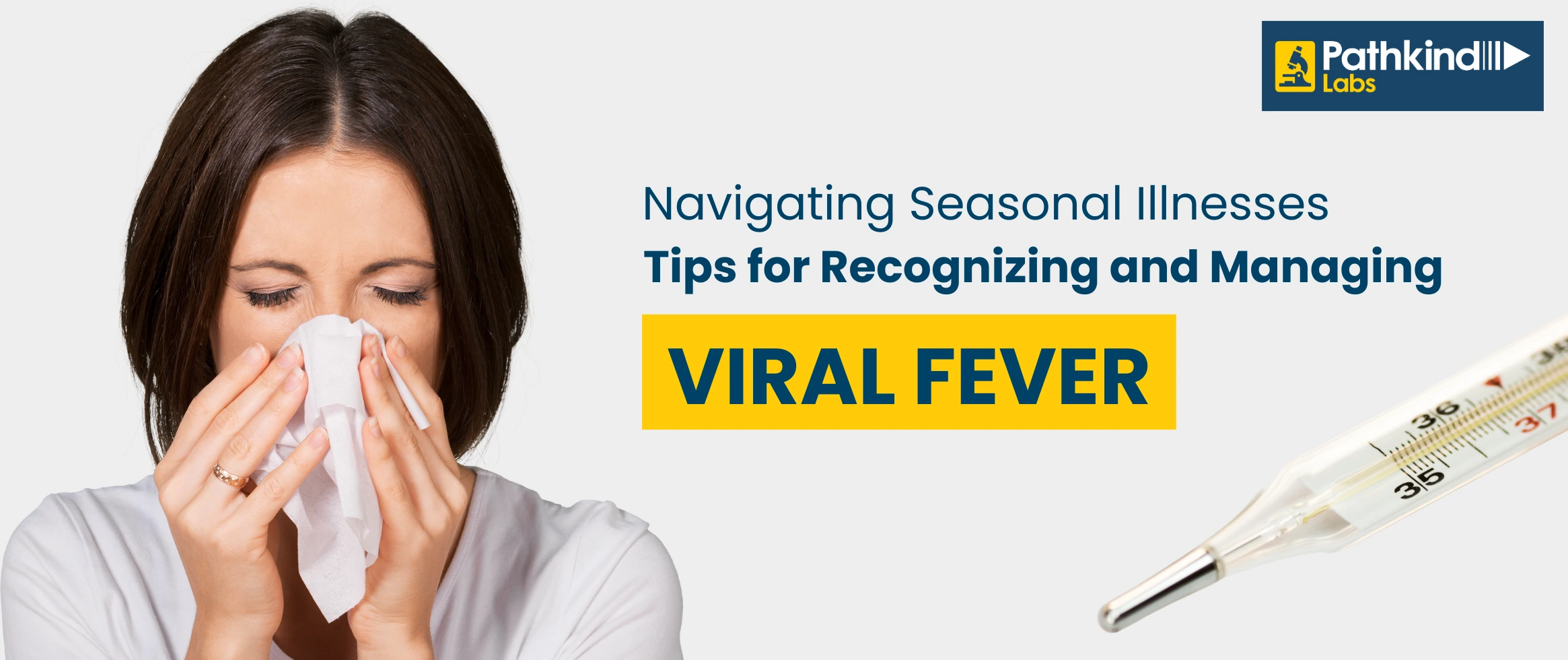
We’ll confirm your booking shortly!
Please provide your number to receive updates.
Enter the 6-digit verification code we just sent you to through SMS. Change Mobile

Viral fever is a common infectious condition caused by many viral infections. Accompanied by fatigue, fever and body aches, and respiratory issues, viral fever can range from 99 degrees Fahrenheit to 103 degrees Fahrenheit. You need to have adequate rest, hydration, and antiviral medications at times to manage it effectively.
Keep reading to learn more about the key viral fever symptoms, as well as some effective tips to help manage it.
Usually, viral fever symptoms do not persist for a long time and stay for only a few days at most. Some of the most common viral fever symptoms are stated below:
Since both bacterial and viral infections present similar symptoms, it is essential to first rule out bacterial infections to diagnose a viral fever. Doctors can do this by considering your symptoms and medical history and taking any samples to test for bacteria.
For instance, in the case of a sore throat, the doctors might swab your throat to test for bacteria that cause strep throat. If the sample comes back negative, you likely have a viral infection.
Thus, it is crucial to be aware of how viral fever develops, its causes, and its symptoms. Most importantly, it is essential to differentiate it from bacterial fever symptoms and be aware of the management tips.
Discover precision diagnostics with Pathkind Labs, a trusted name in diagnostic services in India. Our NABL accredited labs, equipped with advanced technology, are staffed by a certified team of over 200+ senior pathologists and 2000+ technicians. From tailored health check-ups to specialized tests in Oncology, Neurology, Gynaecology, Nephrology, and more, we've got your health covered. Skip the hassle with online booking for tests or check-ups, available for both lab visits and at-home blood collection. For a seamless experience and early detection, choose Pathkind Labs in Gurugram. Book your appointment today and experience diagnostics made easy.
© 2025 Pathkind Diagnostics Pvt. Ltd. All Rights Reserved | Unsubscribe
